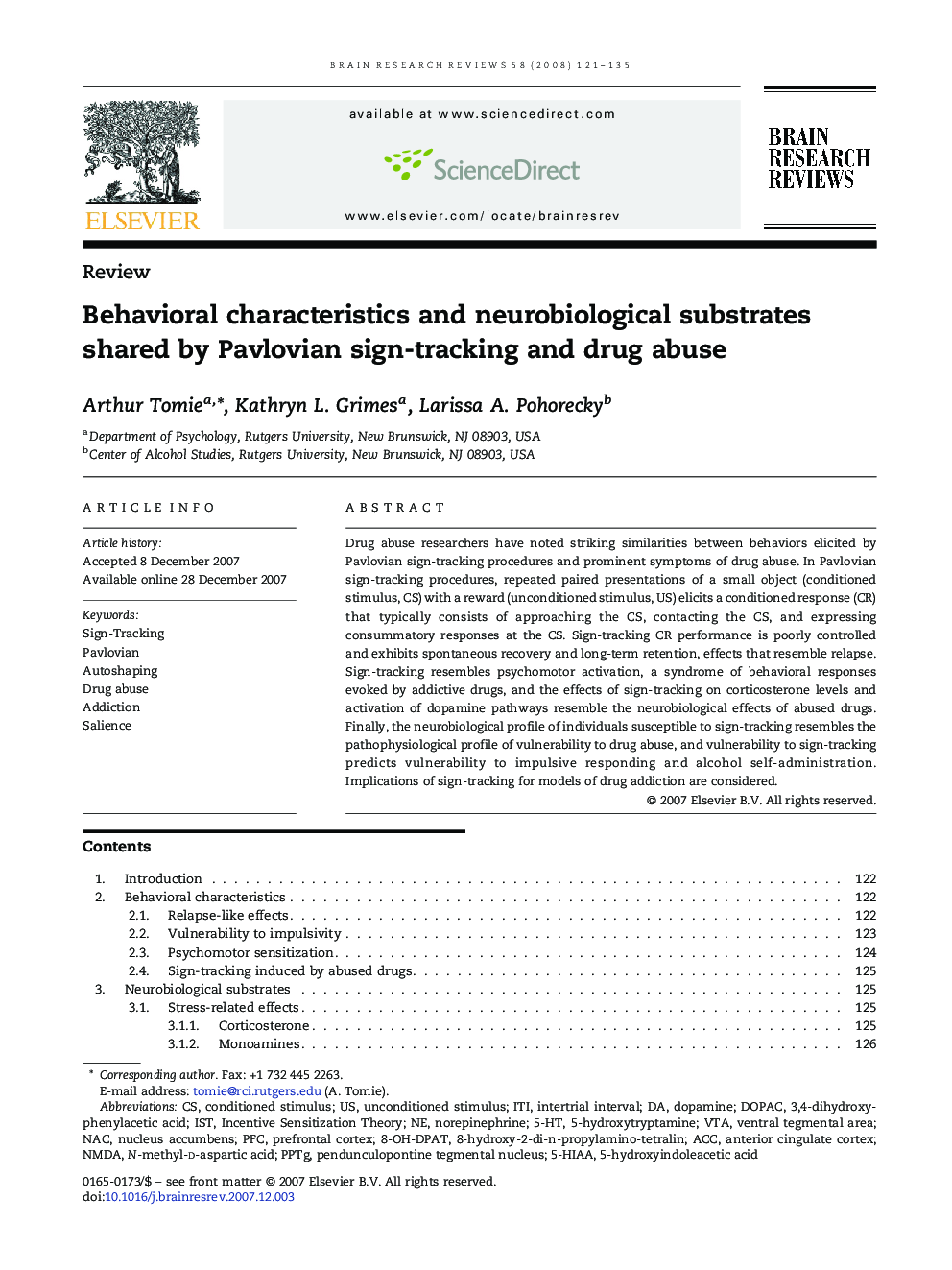| Article ID | Journal | Published Year | Pages | File Type |
|---|---|---|---|---|
| 4333756 | Brain Research Reviews | 2008 | 15 Pages |
Drug abuse researchers have noted striking similarities between behaviors elicited by Pavlovian sign-tracking procedures and prominent symptoms of drug abuse. In Pavlovian sign-tracking procedures, repeated paired presentations of a small object (conditioned stimulus, CS) with a reward (unconditioned stimulus, US) elicits a conditioned response (CR) that typically consists of approaching the CS, contacting the CS, and expressing consummatory responses at the CS. Sign-tracking CR performance is poorly controlled and exhibits spontaneous recovery and long-term retention, effects that resemble relapse. Sign-tracking resembles psychomotor activation, a syndrome of behavioral responses evoked by addictive drugs, and the effects of sign-tracking on corticosterone levels and activation of dopamine pathways resemble the neurobiological effects of abused drugs. Finally, the neurobiological profile of individuals susceptible to sign-tracking resembles the pathophysiological profile of vulnerability to drug abuse, and vulnerability to sign-tracking predicts vulnerability to impulsive responding and alcohol self-administration. Implications of sign-tracking for models of drug addiction are considered.
